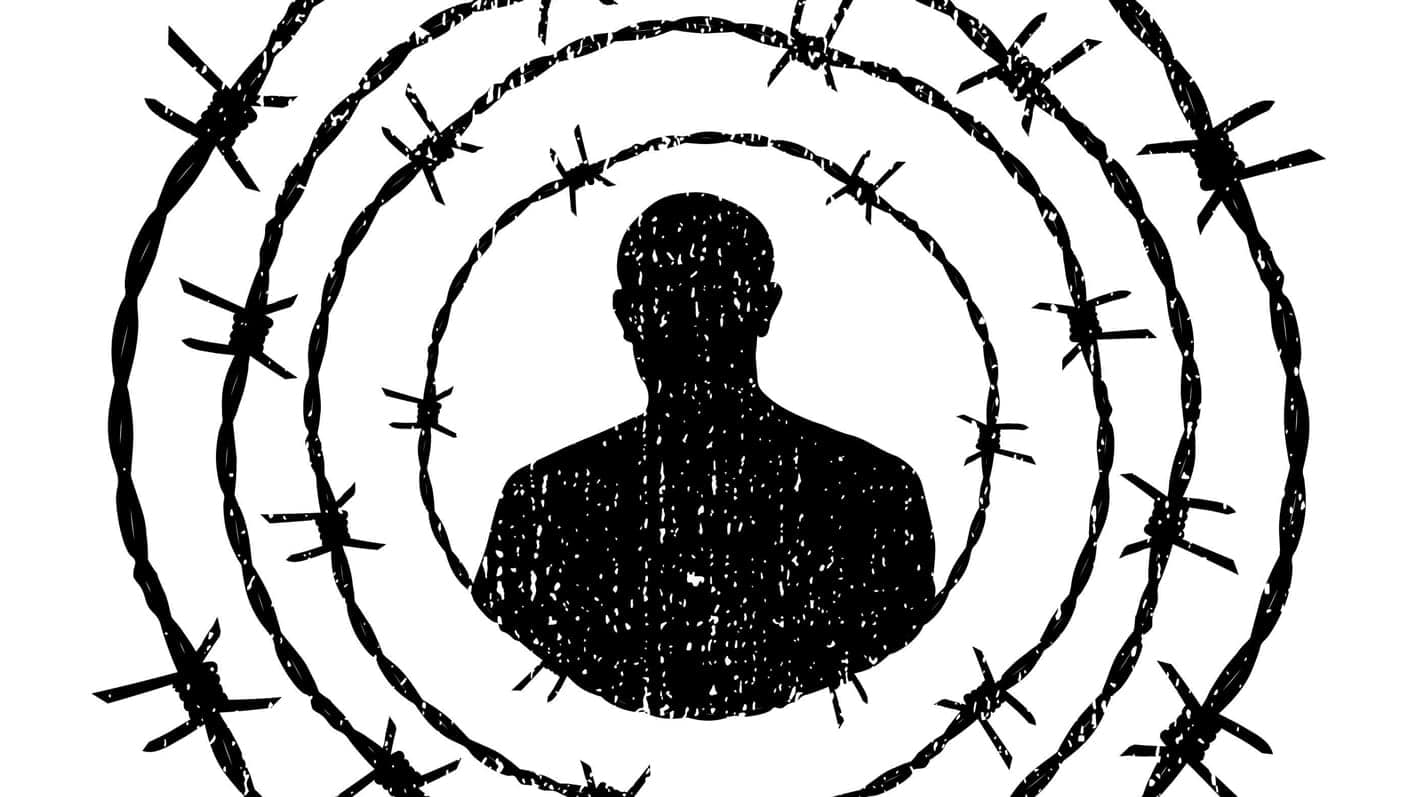Crime and Punishment

I recently stumbled across a blog post from a Christian counseling group titled “Five Indicators of an Evil Heart.” As harsh as that may sound—do any of us want to believe some people’s hearts are truly evil?—the authors reminded us that it’s entirely biblical, and sometimes we do encounter it in other people. There is a difference between an “evil heart” and a run-of-the-mill “sinful heart,” they say.
So what does that difference look like?
Evil hearts “create confusion and contention” by misleading, lying, withholding information and avoiding responsibility; they talk a great game but have zero godly substance; they “crave and demand control,” and don’t allow themselves to be held accountable to anyone; they “play on the sympathies of good-willed people”; and they “have no conscience or remorse.”
“They do not struggle against sin or evil—they delight in it,” the authors wrote, “all the while masquerading as someone of noble character.” Some people fitting that description are walking around free as can be; others are in prison, where society can be protected from them.
It must be noted, however that not everyone behind bars suffers from “evil heart syndrome”: Some convicted criminals are utterly repentant, have taken full responsibility for whatever behavior led to their incarceration, and have truly learned the lessons God had for them to learn through the “correctional system.” For many of those, incarceration has been the rock-bottom experience that led them to surrender their lives to Christ, making them new creations.
And yet their sentences continue—perpetuating, for many, a cycle of fatherlessness and family breakdown that has far-reaching effects of poverty, poor health and bad behavior. According to some researchers, almost 90 percent of those behind bars grew up in homes without fathers present. A study published in the journal Pediatrics in late July revealed that kids whose fathers were absent through either death, divorce or incarceration have shorter telomeres on the ends of their DNA strands—a stress-related condition that sets people up for severe health problems later in life. And young men with fathers in jail are twice as likely to wind up there themselves than their peers—continuing the cycle for another generation.
To that end, some Christian groups are working to connect the hearts of incarcerated fathers with their children through a program called One Day With God (page 17), while others have released a document called the Justice Declaration, outlining some biblical principles they hope will bring lasting reforms to the correction system—and reduce the nation’s reliance on overly punitive sentencing guidelines for first-time and nonviolent offenders (page 21).
There’s a lot of food for thought on this topic, and obviously, plenty of room for error as well. But if Jesus taught us to pray for things on earth to be as they are in Heaven, then we know that Kingdom principles will always have a transformational effect, no matter where they’re applied.
Aren’t you glad God perfectly balances justice with mercy and grace? I know I am.
I recently stumbled across a blog post from a Christian counseling group titled “Five Indicators of an Evil Heart.” As harsh as that may sound—do any of us want to believe some people’s hearts are truly evil?—the authors reminded us that it’s entirely biblical, and sometimes we do encounter it in other people. There is a difference between an “evil heart” and a run-of-the-mill “sinful heart,” they say.
So what does that difference look like?
Evil hearts “create confusion and contention” by misleading, lying, withholding information and avoiding responsibility; they talk a great game but have zero godly substance; they “crave and demand control,” and don’t allow themselves to be held accountable to anyone; they “play on the sympathies of good-willed people”; and they “have no conscience or remorse.”
“They do not struggle against sin or evil—they delight in it,” the authors wrote, “all the while masquerading as someone of noble character.” Some people fitting that description are walking around free as can be; others are in prison, where society can be protected from them.
It must be noted, however that not everyone behind bars suffers from “evil heart syndrome”: Some convicted criminals are utterly repentant, have taken full responsibility for whatever behavior led to their incarceration, and have truly learned the lessons God had for them to learn through the “correctional system.” For many of those, incarceration has been the rock-bottom experience that led them to surrender their lives to Christ, making them new creations.
And yet their sentences continue—perpetuating, for many, a cycle of fatherlessness and family breakdown that has far-reaching effects of poverty, poor health and bad behavior. According to some researchers, almost 90 percent of those behind bars grew up in homes without fathers present. A study published in the journal Pediatrics in late July revealed that kids whose fathers were absent through either death, divorce or incarceration have shorter telomeres on the ends of their DNA strands—a stress-related condition that sets people up for severe health problems later in life. And young men with fathers in jail are twice as likely to wind up there themselves than their peers—continuing the cycle for another generation.
To that end, some Christian groups are working to connect the hearts of incarcerated fathers with their children through a program called One Day With God (page 17), while others have released a document called the Justice Declaration, outlining some biblical principles they hope will bring lasting reforms to the correction system—and reduce the nation’s reliance on overly punitive sentencing guidelines for first-time and nonviolent offenders (page 21).
There’s a lot of food for thought on this topic, and obviously, plenty of room for error as well. But if Jesus taught us to pray for things on earth to be as they are in Heaven, then we know that Kingdom principles will always have a transformational effect, no matter where they’re applied.
Aren’t you glad God perfectly balances justice with mercy and grace? I know I am.
Originally published in the September 2017 issue of Citizen magazine.
ABOUT THE AUTHOR
Related Posts

Is New Paganism Actually Pagan?
May 30, 2023

Daily Headlines | Thursday October 7, 2021
October 7, 2021

Daily Headlines | Wednesday October 6, 2021
October 6, 2021

Daily Headlines | Tuesday October 5, 2021
October 5, 2021
